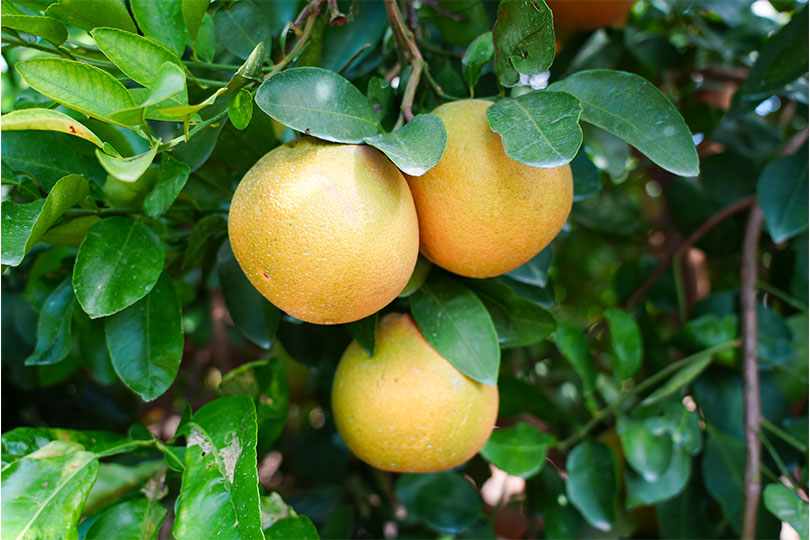By Shelby Shank
Field Editor
The Rio Grande Valley is known for producing some of the nation’s sweetest citrus.
Among the crops, Texas Red grapefruit, often referred to as “Ruby Red,” stands out for its vibrant color and rich, sweet flavor.
“There’s nothing sweeter than a Texas grapefruit,” Dale Murden, a citrus grower in the Valley, said.
For nearly four decades, Murden has grown citrus on the banks of the Rio Grande, but today, the challenges he faces stretch far beyond the orchard.
“The last five years in Texas has kind of been the perfect storm,” he said.
First came Hurricane Hannah in 2020, which knocked fruit to the ground before harvest. Just a year later, Winter Storm Uri devastated the region, freezing thousands of citrus trees and setting growers back. Now, ongoing drought and a water dispute with Mexico threatens the Valley’s agricultural lifeblood.
When Murden started growing citrus in the 1980s, he had close to 100,000 acres of trees. Today, he has 25,000 acres. Much of this reduction is due to freezes, relentless drought and the critical water crisis tied to a broken agreement with Mexico.
Under the 1944 Water Treaty between the United States and Mexico, the neighboring country is required to deliver 1,750,000 acre-feet of water every five years, which is an average of 350,000 acre-feet annually. The current five-year cycle ends in October 2025, and Mexico is behind by more than 1 million acre-feet.
“We’re going into the fourth year of a five-year cycle with Mexico owing us close to a million acre-feet of water,” Murden said. “It’s hard to make plans when you can’t even count on water for your crops.”
As of December 2024, Mexico made a water payment. But without a consistent water supply, Murden and other farmers in the Valley are forced to make difficult decisions.
“It really prohibits you from doing any planning at all,” he said. “Do I plant trees, or do I not plant trees? Do I water this crop, but not this crop? It’s difficult to plan your future when you can’t count on what a treaty obliges Mexico to do.”
Mexican officials point to drought as the primary reason for delay in water deliveries, but the backlog adds immense pressure on Texas agriculture.
Severe drought has also pushed reservoirs to historic lows.
“We’re in the worst shape I’ve seen water-wise going into winter and spring,” Murden said. “Typically, during the summer, there’s a storm event that’ll bring those levels up, but that didn’t happen this year.”
Farmers, including Murden, have cut back acreage, laid off employees or shifted to crops that require less water.
These conditions have also forced the state’s only sugar mill to shut down, resulting in a loss of nearly 500 jobs.
Will the water struggles squeeze citrus out of Texas?
“Could this be the last citrus crop in Texas? No,” he said. “We’ll get the rains we need, or we’ll come to an agreement with Mexico. I’m not going down without a fight.”
For Murden and other growers, the spirit of resilience carries the sweet promise of Texas citrus forward, rooted in a deep love for the land and the hope that the Valley will continue to thrive, one grapefruit at a time.
“Ask any farmer why they do what they do. They love it. Good years or bad—you just love what you do,” Murden said.


Leave A Comment